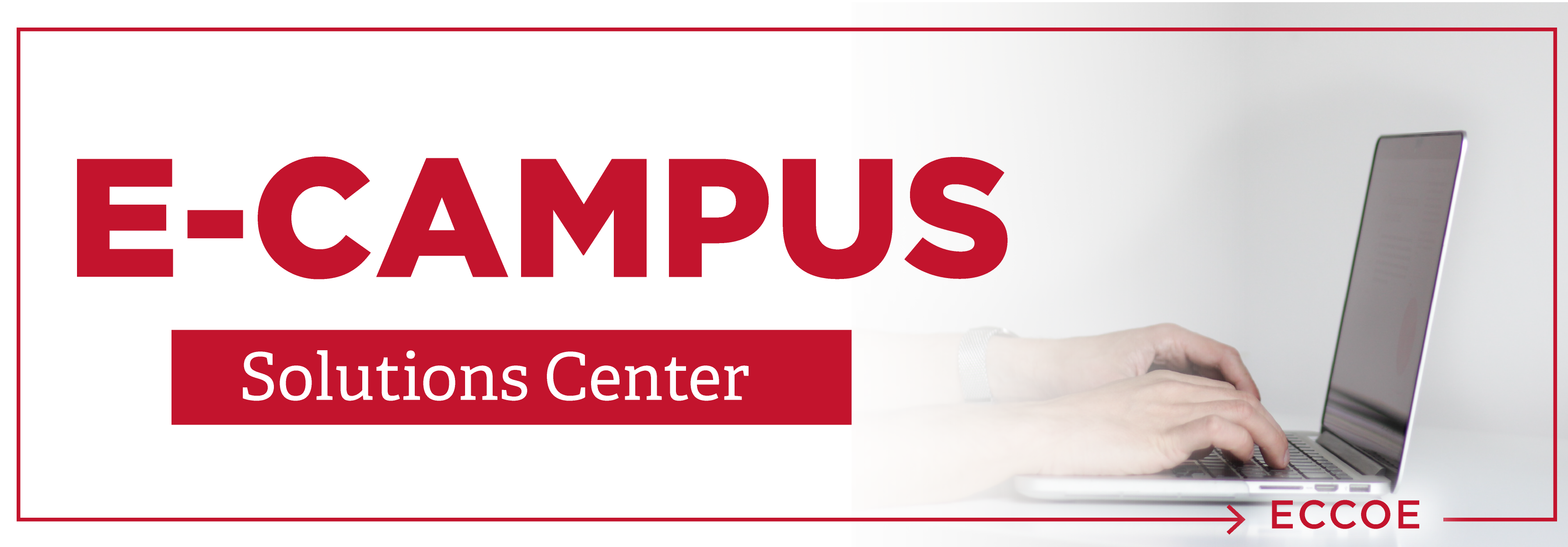
Proctorio

Proctorio: Considerations, Recommendations, & Pro Tips
Miami University uses Proctorio for remote proctoring of high-stakes online exams. Although there is no Proctorio report that unequivocally indicates academic misconduct, Proctorio may assist faculty with promoting academic integrity. Proctorio’s Canvas integration not only creates a secure online testing environment but also makes it easy for faculty to enable it to be used for proctoring any timed Canvas Quiz (aka exam) in any course. Proctorio works within the Chrome web-browser and offers flexible features that may be enabled: such as lockdown browser and recording of video, audio, and/or screen activity.
Should I Use Proctorio?
The short answer is: only when necessary.
The slightly longer answer is: only for high-stakes assessments.
In general, research suggests that students do not cheat more in the online learning environment than they do in traditional face-to-face or blended learning environments. In fact, contrary to popular belief, numerous studies have found students in the online environment were less likely to be involved in academic misconduct than their on-campus peers.
And, what about those who do? Many factors influence whether, or not, a student will opt to cheat. In one study, a nation-wide research project funded by the Australian government’s Office for Learning and Teaching, students in the cheating group expressed lower levels of satisfaction with three key aspects of the teaching and learning environment:
- Staff [Faculty] ensure students understand assignment requirements.
- Staff [Faculty] provide sufficient assessment feedback.
- Staff [Faculty] can be approached for assistance when needed.
In other words, there’s a whole lot more to promoting academic integrity than proctoring an exam. From rapport and relationship-building to curriculum design, institutional culture to assessment innovation, there are multifarious ways to promote academic integrity and, thus, student achievement.
Request a personal consultation with E-Campus to determine if exam-alternative assessments will work for your course.
That said, there are circumstances in which accreditation and licensure programming require proctored exams. There are also a handful of situations in which exam-alternative strategies, such as authentic assessments and curriculum design, are not enough to ensure academic integrity on high stakes examinations. Examples include examinations for licensure programs and examinations in technical areas such as the sciences and mathematics. For these situations, enabling Proctorio creates a secure online testing environment to assist faculty with promoting and monitoring academic integrity.
Additional Considerations
There are also significant access and equity issues to consider when deciding whether or not to remotely proctor an exam using Proctorio, including:
- Do all of your students have access to a stable, functioning, up-to-date computer system?
- Do all of your students have access to a stable internet connection?
- Do all of your students have a functioning webcam connected to the device they intend to use for testing purposes?
- Do all of your students have a functioning microphone connected to the device they intend to use for testing purposes?
- Do all of your students have a quiet, uninterrupted time and space to complete the proctored test at home/off-campus?
- Have any of your students requested accommodation for a disability? (Important Note: Proctorio is not compatible with some screen readers.)
- What is the minimum level of proctoring needed for the exam in question?
The last thing you want to do is make it impossible, or unnecessarily and exceedingly stressful, for your students to perform well on an exam. According to the American Test Anxieties Association, about 16-20% of students have high test anxiety, making this the most prevalent scholastic impairment in our schools today. Another 18% are troubled by moderately-high test anxiety. When you consider that and then layer upon it system lockdowns, audio, video, and screen recordings, and technical complications, it is important to consider whether or not remotely proctoring the exam is necessary.
That said, there are circumstances in which remotely proctoring an exam is necessary and should be used. And, even if some of the answers to these questions are ‘no,’ you may still be able to use Proctorio so long as you do not “lock it down” by enabling all available settings to the highest extent.
Proctorio Pro Tips
- If you will be using Proctorio to remotely proctor an exam in your course at any point during the term, you will need to add the Proctorio Syllabus Statement to your syllabus, regardless of modality. This gives students an overview of test proctoring and allows them to address any accessibility concerns with Student Disability Services.
- Require students to take a Proctorio-enabled practice Canvas Quiz first (not for points) so they can resolve any technical issues before the first real Canvas Quiz (aka exam). Better yet, set the practice quiz so that it may be taken multiple times that way students can practice at any time, and multiple times, throughout the term.
- A practice quiz and documentation can be imported from Canvas Commons (module name: "Proctorio Resources + Practice Quiz by Miami Regionals E-Campus") NOTE: You will have to be logged into your MU account in order to access this resource.
- You may be tempted to engage all available proctoring settings to proctor your exam. If you do, your post-exam data analytics will have many flags. You’ll spend hours trying to sort through them all to determine which are credible and which are not (e.g. the test taker sneezed). Instead, consider what is the minimum level of proctoring needed for the exam in question. If you opt to engage many and/or high levels of security in the settings, you may find it easier to examine the Proctorio data analytics if you uncover something suspicious as you review exam submissions.
- NOTE: You can change the severity of suspicion (behavior settings > lenient-moderate-severe) even after an exam is over, and it will immediately "re-grade" the student records. This allows you to dial in the settings after an exam to only see the areas of your interest.
- Allow “re-entry.” There are many legitimate reasons why a student’s connection could be dropped (e.g. momentary loss of internet connection). It’s best to allow re-entry so they can pick up where they left off.
- Avoid the setting "Record Room" since students will be asked at random moments during the test to provide a panoramic view by moving their webcam, and some monitors are not easily moved.
- Use the Exam Flexibility feature available through the Moderate Quiz options in Canvas to turn off Proctorio for individual students in your course. Review Enable Proctorio Exam Flexibility Video for instructions.
- To address accessibility concerns in Proctorio for all students, the following setting adjustments must be made:
- Turn off all LockDown Options.
- Turn off the Record Room Recording Option.
- Turn off the Verify ID Verification Option.
Text to speech software will not integrate with any of the LockDown features. Users with limited mobility cannot independently use the ID Verification and Room Scan features.
- Create and use a saved ‘Profile’ to apply your favorite settings with a single click. Proctorio Profiles allow you to quickly set your preferred Proctorio exam and behavior settings across all of your courses.
- You will need to add proctoring information to your course syllabus to give students an overview of proctoring: Proctorio Syllabus Statement
- Proctorio updates regularly, as does Google Chrome, which may cause students to receive a message stating that they need an access code. While they do not need an access code (don’t give them the password), before calling Proctorio Support, they should first update Windows and/or Chrome and/or Proctorio. Doing so resolves an extremely high # of issues experienced.
- We’ve created a canned response for you to use when students reach out to you reporting Proctorio technical issues:
- Thank you for reaching out about the issues you are having with connecting using Proctorio. Error messages like the one you are receiving, often are resolved by updating your systems: Google Chrome, Proctorio Chrome Extension, or even Windows. You will find information on how to do this at IT@Miami’s Knowledge Base Article for Proctorio Troubleshooting. If you continue to experience issues, you will need to connect with Proctorio Support at (866) 948-2039. Please let me know when the issue has been resolved.
- We’ve created a canned response for you to use when students reach out to you reporting Proctorio technical issues:
- Proctorio Support offers live chat and email support for students by calling (866) 948-2039. Faculty looking for support should connect with the E-Campus Solutions Team at ecampushelp@miamioh.edu or by phone at 513.217.4003 (x7-4003).
References
American Test Anxieties Association. (n.d.). Test anxiety. Retrieved April 30, 2020 from http://amtaa.org/.
Bretag, T., Harper, R. (2017). Assessment design won’t stop cheating, but our relationships with students might. The Conversation. Retrieved April 30, 2020 from https://theconversation.com/assessment-design-wont-stop-cheating-but-our-relationships-with-students-might-76394.
Haynie, D., Moody, J. (2019). Think twice before cheating in online courses. U.S. News and World Report. Retrieved April 30, 2020 from https://www.usnews.com/education/online-education/articles/2014/06/17/think-twice-before-cheating-in-online-courses.
Harwell, D. (2020). Mass school closures in the wake of the coronavirus are driving a new wave of student surveillance. The Washington Post. Retrieved April 30, 2020 from https://www.washingtonpost.com/technology/2020/04/01/online-proctoring-college-exams-coronavirus/.
Kennedy, Robert. (2020). Why Students Cheat and How to Stop It. Retrieved from https://www.thoughtco.com/cheating-basics-for-private-schools-2773348.
Leafstedt, J. (2017). Online courses shouldn’t use remote proctoring tools. Here’s why. EdSurge. Retrieved April 30, 2020 from https://www.edsurge.com/news/2017-04-19-online-courses-shouldn-t-use-remote-proctoring-tools-here-s-why.
Lytle, R. (2012). Online education programs tackle student cheating. U.S. News and World Report. Retrieved April 30, 2020 from https://www.usnews.com/education/online-education/articles/2012/11/26/online-education-programs-tackle-student-cheating.
Miller, A., Young-Jones, A.D. (2012). Southwestern Psychological Association, Oklahoma City, OK. Retrieved April 30, 2020 from http://people.missouristate.edu/ardenmiller/swpa12.pdf.
Neils, G. (2003). Academic practices, school culture, and cheating behavior. Retrieved Apri 30, 2020 from http://www.winchesterthurston.org/uploaded/About_Us/cheating.pdf.
Phillips, V. (n.d.). Big fat online education myths - students cheat like weasels in online classes. GetEducated. Retrieved April 30, 2020 from https://www.geteducated.com/elearning-education-blog/big-fat-online-education-myths-students-cheat-like-weasels-in-online-classes/.
Pilgrim, C., Scanlon, C. (2018). Don’t assume online stuets are more likely to cheat. The evidence is murky. The Conversation. Retrieved April 30, 2020 from https://theconversation.com/dont-assume-online-students-are-more-likely-to-cheat-the-evidence-is-murky-98936.
Schwartz, N. (2020). Colleges flock to online proctors, but equity concerns remain. EducationDive. Retrieved April 30, 2020 from https://www.educationdive.com/news/colleges-flock-to-online-proctors-but-equity-concerns-remain/575642/.
Stuber-McEwen, D., Wiseley, P., Hoggatt, S. (2009). Point, Click, and Cheat: Frequency and Type of Academic Dishonesty in the Virtual Classroom. Online Journal of Distance Learning Administration. v12 n3.
Rowena Harper, T. Bretag, C. Ellis, P. Newton, P. Rozenberg, S. Saddiqui & K. van Haeringen (2019) Contract cheating: a survey of Australian university staff, Studies in Higher Education, 44:11, 1857-1873, DOI: 10.1080/03075079.2018.1462789
Tracey Bretag, Rowena Harper, Michael Burton, Cath Ellis, Philip Newton, Pearl Rozenberg, Sonia Saddiqui & Karen van Haeringen (2019) Contract cheating: a survey of Australian university students, Studies in Higher Education, 44:11, 1837-1856, DOI: 10.1080/03075079.2018.1462788
Tracey Bretag, Rowena Harper, Michael Burton, Cath Ellis, Philip Newton, Karen van Haeringen, Sonia Saddiqui & Pearl Rozenberg (2019) Contract cheating and assessment design: exploring the relationship, Assessment & Evaluation in Higher Education, 44:5, 676-691, DOI: 10.1080/02602938.2018.1527892
Wallace, K. (2009). High-Tech Cheating On The Rise At Schools. CBS News, CBS Interactive, 17 June 2009. Retrieved April 30, 2020 from https://www.cbsnews.com/news/high-tech-cheating-on-the-rise-at-schools/.
Watson, G., Sottile, J. (2010). Cheating in the digital age: Do students cheat more in online courses? Online Journal of Distance Learning Administration, v13 n1.

